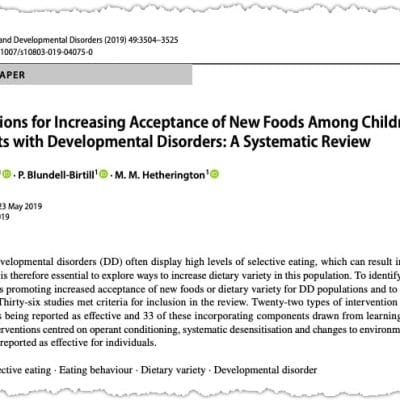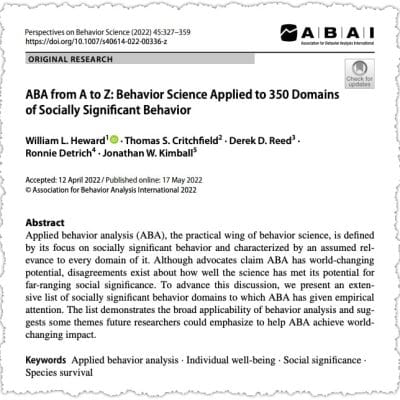Treating Food Selectivity as Resistance to Change
Kathryn M. Peterson & Cathleen C. Piazza
In this study, presented at the 2021 Michigan Autism Conference, a matching-law-based intervention was employed to address change-resistant feeding behavior in seven young children with autism. Participants were offered a choice between their preferred food and an alternative during free- and asymmetrical-choice conditions. Alternative-food consumption increased for participants through various strategies. Results demonstrate the effectiveness of teaching children to consume alternative foods even when their preferred options are available.
This product has been discontinued.
You may also like…
-
Article Quiz

1 BCBA CEU
Interventions for Increasing Acceptance of New Foods Among Children and Adults with Developmental Disorders: A Systematic Review
L.R. Chawner, P. Blundell-Birtill, & M.M. Hetherington$9.99 Add to Cart Quick View -
Interactive Video

1 BCBA CEU
From Pigeons to Behavioral Economics: An Interview with Leonard Green
Leonard Green5.00 out of 5(1)$9.99 Add to Cart Quick View -
Article Quiz

2 BCBA CEUs
ABA from A to Z: Behavior Science Applied to 350 Domains of Socially Significant Behavior
William Heward, Thomas Critchfield, Derek Reed, Ronnie Detrich, & Jonathan Kimball5.00 out of 5(1)$19.99 Add to Cart Quick View



